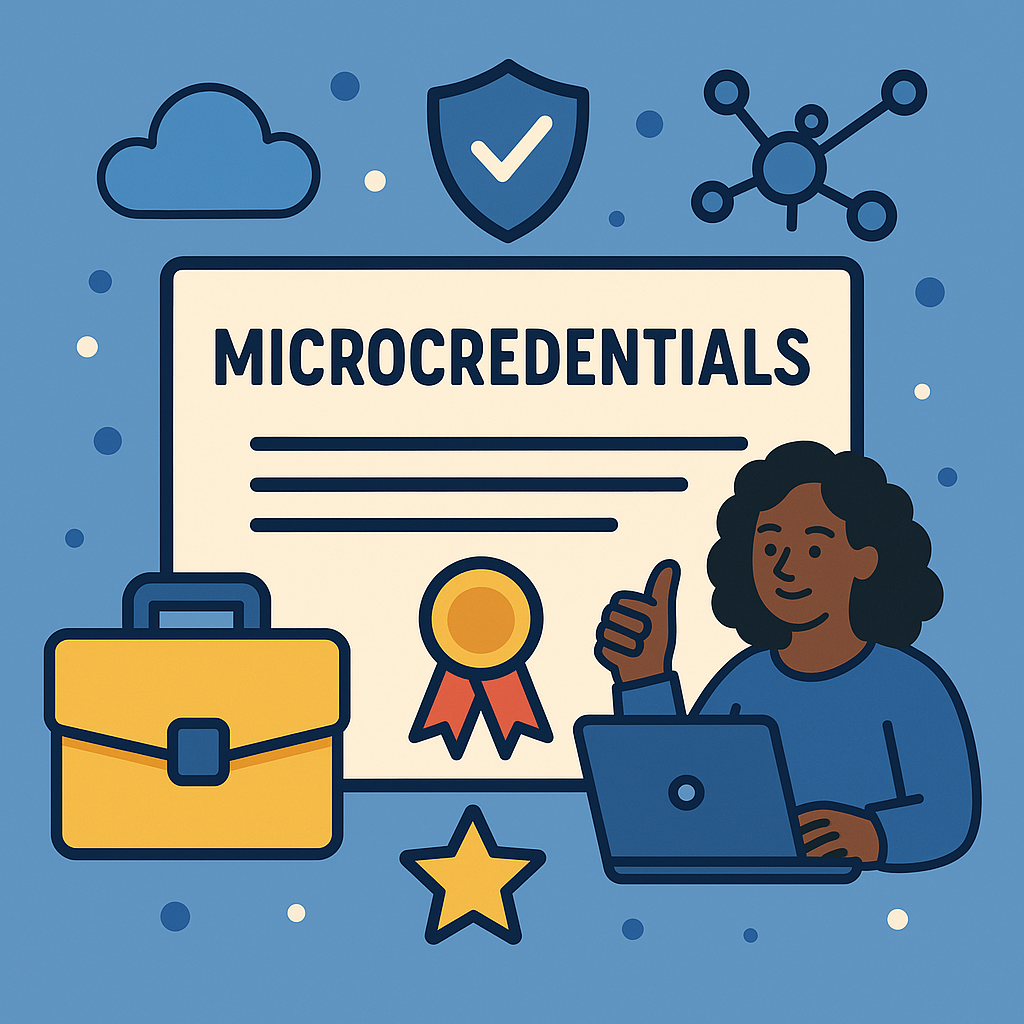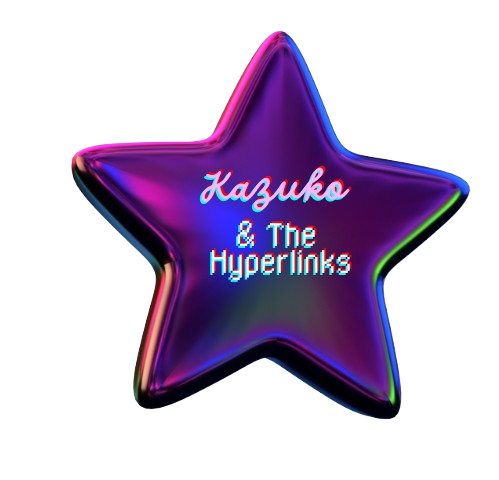New Horizons Reflection Blog: Microcredentials

Note. Image generated using ChatGPT(DALLE) from the prompt create a picture for microcredentials with a Black woman
As librarians, it is our job to spot emerging trends, keep up with new technologies, and work to become trendsetters in our communities. Career services are essential to stay up to date with at libraries as these are important resources for people seeking jobs in our community.
One key concern about technology becoming a staple in our way of life is the increase in economic disparities between those who have access to technology and those who do not. This affects people who are actively looking for jobs “as those who are highly connected and the tech-savvy pull further ahead of those who have less access to digital tools and less training or aptitude for exploiting them and as technological change eliminates some jobs” (Anderson et al., 2021). Libraries are places where these gaps can be eliminated or, at the very least, reduced through services that provide online skills training.
The Microcredential degree (Stephens, n.d.) was a compelling concept to me. According to the 2024 EDUCASE Horizon Report, Digitization and automation are leading companies to embrace hiring based on skills and “reevaluating traditional degree programs, looking for ways to implement workforce development into curriculum” (Pelletier et al., 2024). Breaking down a job description into key skills and taking classes, workshops, and attending training to fulfill the criteria seems like a step in the right direction. My county currently offers LearningExpress Career Preparation and LinkedIn Learning which can help create a microcredential degree. Many degrees overload you with information that may be unnecessary but still mandatory. This makes the degree take longer and cost more money which is harmful for people who are using a MLIS to obtain a higher-paying job. Microcredentials are an equitable way to fill in a potential employee’s information gaps to succeed in an information profession role.
References:
Anderson, J., Rainie, L., & Vogels, E. (2021). Experts Say the “New Normal” in 2025 Will be Far more Tech-Driven, Presenting More Big Challenges.
Pelletier, K., McCormack, M., Muscanell, N., Reeves, J., Robert, J., & Arbino, N. (2024). 2024 EDUCAUSE Horizon Report: Teaching and Learning Edition. EDUCAUSE. https://library.educause.edu/-/media/files/library/2024/5/2024hrteachinglearning.pdf
Stephens, M. (n.d.).Hyperlinked Library New Horizons [Video]. INFO 281. San José State University. https://sjsu-ischool.hosted.panopto.com/Panopto/Pages/Viewer.aspx?id=85759763-9fb5-4c67-89f4-af100138e81c

3 Comments
Tyrone
Hello Kazuko,
I enjoyed reading your blog post! I agree with your sentiments that often times, there are certain courses that aren’t necessary and overload you information that shouldn’t require the time and energy we invest for what we truly want to value.
A Microcredential degree is a interesting prospect to energize people who want to look into specific ways into finding their next role and I think is a cool breakdown for growing your skills in a meaningful way.
Michael Carter
A reflective exploration of the role microcredentials play in education, showcasing their potential for personal and professional growth.
Michael Stephens
@kazuko I’m so glad you covered this topic. I remember micro credentials were sort of on everybody’s mind like a year ago. I haven’t seen as much about it right now, but maybe it’s a little farther into the cycle then other topics such as AI. I agree with you. This is a path toward equity. If some library staff members can work toward micro credentials or multiple micro credentials that enable them to do specific jobs at the library.
Also, I can’t stress enough how important it is to me to see libraries offering exactly what you highlight job seeking courses, using online tools for job, searching, etc.